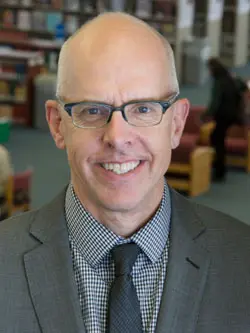



History Professor David Kinkela provided commentary in the PBS “American Experience” documentary on Rachel Carson, the influential writer, scientist and author of the best-selling “Silent Spring,” considered by some historians as the seminal event that launched the American environmental movement.
In her book, released in 1962, Ms. Carson issued a dire warning about hazards associated with the emerging class of synthetic pesticides, most notably DDT, whose widespread use began during World War II.
Dr. Kinkela is the author of the award-winning book, “DDT and the American Century: Global Health, Environmental Politics and the Pesticide that Changed the World,” which examined the interconnections between U.S. environmentalism and U.S. foreign policy. It was published in 2011 by the University of North Carolina Press.
The profound influence that ‘Silent Spring’ had on the nation was brought out in remarks by Kinekla, who also discussed the chemical industry and related sciences in the years that followed World War II. “In ‘Silent Spring,’ Carson exposed the dangers of pesticides and challenged the prevailing thinking about the excessive use of chemicals in our world,” Kinkela explained. “My work as a historian was to draw attention to the intersections between science, politics and culture and how they not only shaped Carson’s thinking, but those of the chemical industry.”
Kinkela was contacted by the documentary’s director, Michelle Ferrari, who had read “DDT and the American Century” and asked Kinkela if he would be willing to sit for an interview.
“It was great,” Kinkela remarked. “I was glad that my book helped someone think about Carson’s work in a different way. As a writer that was very exciting. And the offer to participate in the film was simply an added bonus.”
The two-hour documentary features commentary by biographers, writers, historians and an environmental scientist. Broadcast nationally on Jan. 24, it is available to stream on the PBS website.